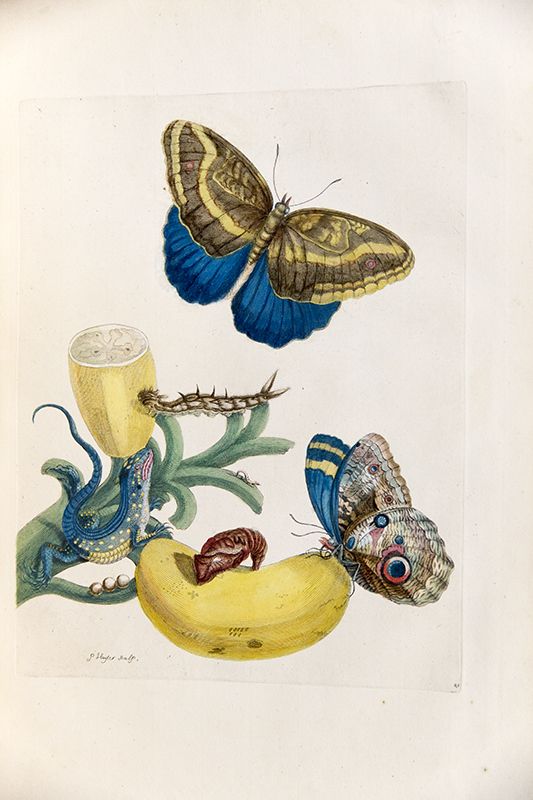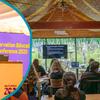For Zoo Tales week, we asked Ann Sylph, librarian at the ZSL Library, a series of questions on one of the world's most significant zoological archives...
Would you like to introduce yourself, and tell us a little about your role and how you came to acquire it?
Ann Sylph, Librarian at ZSL since 1992. I have been here for 30 years and I am not bored! My role seems to change, I am learning all the time and there is always something amazing. I studied for a BSc in Ecology, mainly aquatic, but decided I preferred carrying out literature searches in the library rather than getting wet and cold doing fieldwork. I studied for an MSc in Information Science then worked in a variety of library and information services. I took a career break to travel through east Africa and decided I need to change direction and work in a collection with a subject linked to my first degree. I was so lucky, the ZSL was advertised soon after I returned from travelling.
I am keen to use our collections to inspire and inform people about animals and the need for their conservation. Throughout my time at ZSL I have tried to make our collections more accessible. It is wonderful having online catalogues now for both the library collections and the archives, it makes so much easy for discovery and learning compared to the index cards used when I first began my career.
And the field work? Well, I am a Citizen Scientist for the Citizen Crane project, doing Riverfly Monitoring each month but I let one of my ZSL colleagues actually go into the water!
Could you give us an overview of the ZSL Library?
ZSL Library and Archives contains an amazing collections concerning animals including books, journals, art works, photographs and our archives. A unique resource and it is open to ALL so anyone with an interest can make an appointment to visit.
Do use our online catalogues to discover our collections for books, journals, art works and online links to resources: library.zsl.org for archives: zsl.maxarchiveservices.co.uk these are of course accessible 24/7
Our collections range from Gessner's Index animalium the first 'modern zoology' which was published in the sixteenth century to the current, although primarily historical content, we do still add links to online publications and new books. ZSL was established in 1826 so the archives date from then - and yes we are approaching our bicentenary.
What do you consider to be the item of most historical or scientific value in the library/archive?
Although difficult to choose, I am going to choose the manuscripts of Brian Houghton Hodgson, 1800-1894! Further details on our website here.
Maybe seem rather niche to some, but the manuscripts are used quite extensively and I still feel more research could be done using them. Most recent use is in the new South Asian Gallery at the Manchester Museum - it opened last weekend! Some reproductions of pages from our collections are displayed with specimens collected by Hodgson (more info here).
ZSL is fortunate in having six manuscript volumes of his original bird drawings with extensive notes and two further volumes concerning mammals with drawings by Raj Man Singh. 1078 pages on birds of Nepal and India, 456 on mammals. We also have his correspondence with letters from Joseph Dalton Hooker, Lord Stanley (Knowsley Menagerie), P.L. Sclater (Secretary of ZSL), J.E. Gray of the British Museum.
Nepal is so biodiverse and these manuscripts include many early descriptions of the birds and mammals found there including even some migration and distribution data.

Engraving of Banana with teucer owl butterfly and rainbow whiptail lizard in Maria Merian's 'Dissertation sur la génération et les transformations des insectes de Suriname...', 1726.
What are some of your personal favourites from the library?
It is so difficult to choose as I have so many favourites!
As I am interested in women and their contribution to the development of zoology as well as 'sciart' I am deciding to choose Maria Merian's 'Dissertation sur la génération et les transformations des insectes de Suriname...', our copy was published in 1726. It is illustrated with colourful engravings depicting insect life cycles including their food plants. Maria Sibylla Merian, 1647-1717, was a German born entomologist, artist and traveller. At the age of 52 she travelled to Surinam with her daughter to study the insects there. Her careful observations helped to disprove the theory of spontaneous generation and prove that insects had a life cycle. She was also interested in amphibians and reptiles but sadly did not manage to publish a book about them. There is more in one of my blogs on the ZSL website.
Thank you very much, when is the library open to visit and how can people make use of it?
ZSL Library and Archives are open Tuesdays and Wednesdays 10.30am to 5pm. Please do contact us in advance of your visit. Email [email protected]
We are located in Regent's Park, London, on the Outer Circle with the junction of St Mark's Bridge.
The Reading Room containing many books is open access but we have to get out historic material in advance, so do let us know if you want to see something in particular. We are also happy if you want to visit as a group and see some of our special collections, again just drop us an email. More details on our website.
Follow us on Twitter @ZSLLibrary we do regularly feature highlights from our collections
We are keen to continue to develop our 'special collection' on information about zoos around the world so do contact us if you can donate guides, maps or any publications relating to zoos
All blogs reflect the views of their author and are not a reflection of BIAZA's positions.
Related Members
-
News
 Blog: Why Hosting a BIAZA Conference Matters 3rd March, 2026For this week's blog, Chris Eley (Hertfordshire Zoo) recounts the value of hosting a BIAZA event in 2025: In November 2025, we hosted the BIAZA…
Blog: Why Hosting a BIAZA Conference Matters 3rd March, 2026For this week's blog, Chris Eley (Hertfordshire Zoo) recounts the value of hosting a BIAZA event in 2025: In November 2025, we hosted the BIAZA… -
News
.png?w=100&h=100&zc=1&f=jpeg&hash=97e6d151315c515d23f80e6ee9d1d533) BIAZA Blog: How Accreditation is creating change at BIAZA 25th February, 2026After two years of BIAZA Accreditation, the team delivers a look ahead on the programme to support and boost world-class zoos…
BIAZA Blog: How Accreditation is creating change at BIAZA 25th February, 2026After two years of BIAZA Accreditation, the team delivers a look ahead on the programme to support and boost world-class zoos… -
News
.png?w=100&h=100&zc=1&f=jpeg&hash=a0b01e801771c24b4d7f5c3df4abed98) Twycross Zoo Welcomes Its First Baby of 2026: An Endangered Pileated Gibbon 19th February, 2026Conservation charity, Twycross Zoo, is celebrating a heart-warming milestone with the arrival of its first baby of 2026 - an endangered pileated gibbon,…
Twycross Zoo Welcomes Its First Baby of 2026: An Endangered Pileated Gibbon 19th February, 2026Conservation charity, Twycross Zoo, is celebrating a heart-warming milestone with the arrival of its first baby of 2026 - an endangered pileated gibbon,…



